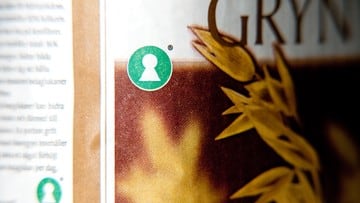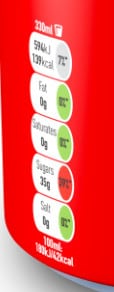Last week the Commission officially opened litigation proceedings against the UK for its traffic light labelling system, following its introduction in the UK in June 2013 and heated debate dating back to its proposal in 2008.
The voluntary front-of-pack scheme ranks sugars, fat, saturated fatty acids and salt by assigning the colour red, green or amber according to content per 100g. Critics have called the classification overly simplistic and suggested it could pose a hindrance in the harmonisation of EU food policy and trade within the block and encourage deviation from other member states.
Yet the UK’s system is not the only voluntary labelling scheme in the EU – predated by the Nordic keyhole nutrition label, which celebrated its 25th birthday this year.

However, the Commission said the UK’s colour-coded system differed in that it was negative in its ranking of both ‘good’ and ‘bad’ nutrition contents.
“The UK system is distinct because it creates a negative inference on products having the ‘red’ light and to a lesser extent having the ‘amber’ light,” a spokesperson told FoodNavigator.
What’s the difference?
The voluntary keyhole scheme in place in Sweden, Norway, Denmark and Iceland was granted to packaged, fresh and restaurant foods that adhered to its food-grouped standards on fat, sugar, salt, fibre and wholegrain content. Products that did not follow these standards based on the Nordic Nutrition Recommendations were simply not granted the right to use the logo on pack.
The Commission said on this point the two were different. “The traffic light system proposed by the UK is the first one in this regard hence the need to act in order to prevent similar system been adopted by other member states and fragmenting the internal market.”

“Creating a negative inference on a product in a way which shows that the product is inferior may adversely affect the consumer's perception of the product in question. Consequently this creates obstacles to trade which are in violation of EU law.”
This year France announced plans for its own colour-coded system.
Italian trade groups have been especially perturbed by the UK label, saying it was misleading for consumers in its ‘red alert' for its traditional foodstuffs like parmesan cheese for salt and fat content, while diet Coke would be labelled green for all nutrients and regular Coke green for all but sugar, which was labelled red.
Last month Coke announced plans to join the scheme after initially saying it would stick with pan-EU GDAs (Guideline Daily Amount). The company said it was not for them to comment on what this case might mean for the industry.
A pending case
Following a letter from the Commission officially opening the litigation proceedings last week, the UK now has two months to present its case.
Asked how the UK might be expected to defend itself, a spokesperson for the Commission told us: “In principle a member state may bring up any justifications/explanations to show that the measure does not create obstacles to trade or that it is justified.”
Meanwhile, a spokesperson for the UK’s Department of Health said: "We are confident that the UK is compliant with the principle of free movement of goods in relation to food labelling.”
It said further comment at this stage would be inappropriate since it was in discussion with the European Commission about the issues raised.
In a worst case scenario for the UK, it could see the case referred to the European courts for a 'reasoned opinion', which could also result in fines. However, depending on the justification presented by the UK, the Commission could decide to close the case.
